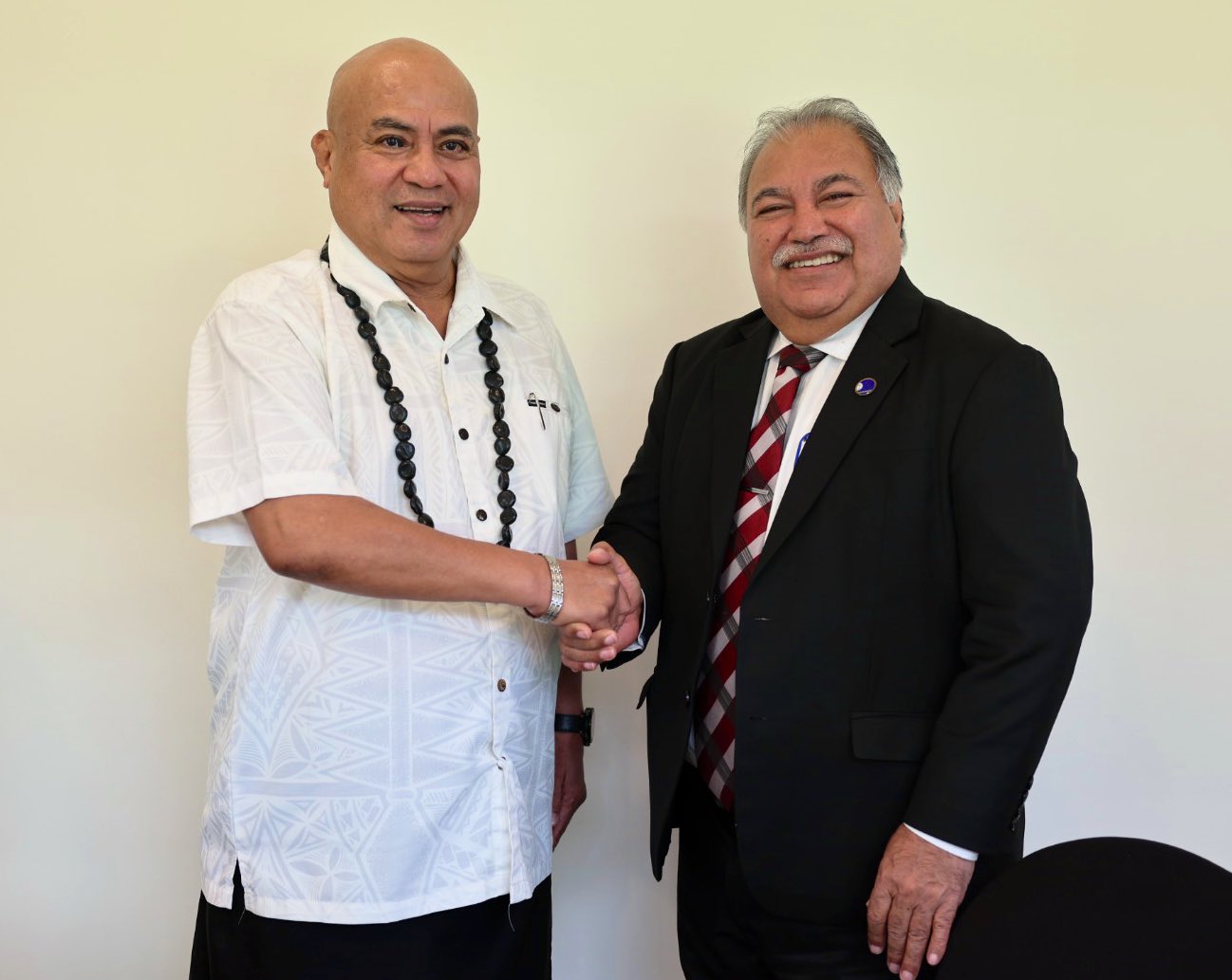Australia has committed to assisting Tuvalu in climate adaptation through the Falepili Union treaty, Tuvalu’s Prime Minister Feleti Teo says.
The agreement signed at the end of last year – labelled “shameful” by one ex-Tuvalu leader – between the two nations creates a special visa pathway for Tuvalu citizens to live in Australia.
It also gives Australia veto power over Tuvalu entering into security agreements with other countries, under Article 4, which some experts say is targeted at China.
Article 4.4 of the treaty states: “Tuvalu shall mutually agree with Australia any partnership, arrangement or engagement with any other State or entity on security and defence-related matters. Such matters include but are not limited to defence, policing, border protection, cyber security and critical infrastructure, including ports, telecommunications and energy infrastructure.”
However, Teo told RNZ Pacific in Tonga that the treaty is much broader, and Australia has “very much so” addressed Tuvalu’s concerns under Article 4.
“We have worked out a workable arrangement, which is fine with us, and we on the verge of ratifying the treaty,” he said.
“It commits Australia to assist Tuvalu in Tuvalu’s efforts against the impact of climate change, including building up the coastal resilience and the adaptability of our coastlines against the impacts of sea level rise.
According to the Australian government, “safeguarding Tuvalu’s future lies at the heart of our Falepili Union”.
Teo said the arrangement shows Australia is committed to reducing its share of greenhouse gas emissions to tackle the climate crisis.
“There is no explicit undertaking by Australia, but because of the nature of their commitment to assist us [under the Falepili Union], I am confident that will be a useful platform for us to leverage their commitment to continue to contribute to the reduction of global emission levels.”
The previous Tuvalu prime minister, Kausea Natano, who signed the treaty with Australian PM Anthony Albanese told RNZ Pacific in November 2023, that the treaty is allowed Tuvalu to “maintain our identity in the surface of this planet”
Kausea said at the time that Tuvalu would aim to negotiate similar treaties with other Pacific nations, including New Zealand and Fiji.
Teo said while he has not had any conversations with New Zealand, he has had talks with Fiji and agreed to develop a bilateral agreement.
“I have asked and Prime Minister [Sitiveni] Rabuka has agreed for us to develop a framework bilateral agreement that will provide parametres within which we can enhance our cooperation and collaborations in different sectors.”
The Prime Minister also said he was not contemplating ditching his ties with Taiwan for China.
Taiwan has been steadily losing allies in the Pacific, with Nauru being the latest in the region to drop ties in January of this year. Kiribati switched to Beijing in 2019.
Teo said their relationship with Taipei is built on democratic respect.
“We have had a very long-term relationship with Taiwan, and I think we are one of the three Forum members that has maintained and sustained our relationship with Taiwan.
“We hope that will continue to maintain that relationship and we don not contemplate to engage with mainland China,” he said.














